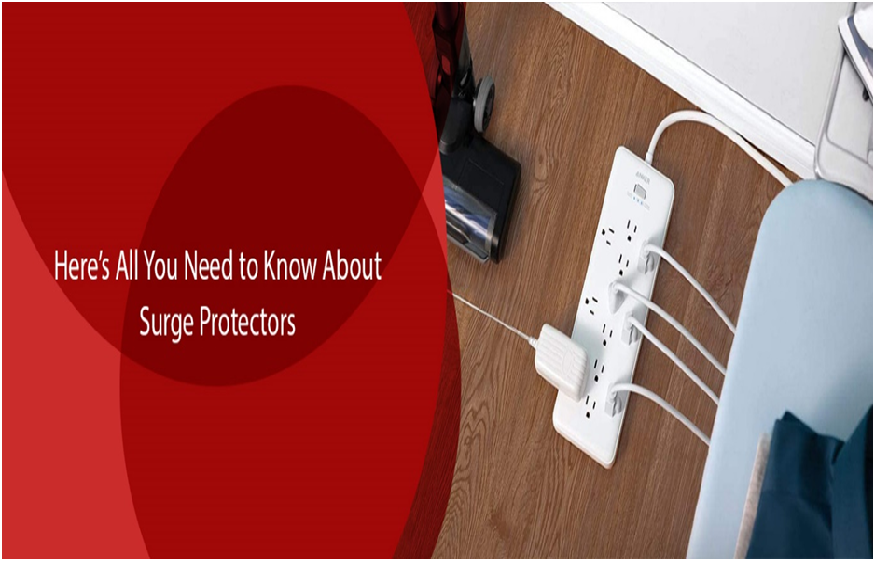Today’s modern electronic appliances and devices a much more sensitive as compared to those in the past. In fact, a string power surge has the ability to damage your appliances and devices within seconds, wheras, multiple power surges in a day will reduce their lifespan.
Now, whether you want to add more power outlets in your home, or simply want an extra layer of protection between your devices and the outside world, you will need to invest in a good surge protector.
The market is filled with all kinds of surge protectors, ranging from different prices to different features. This makes it a little overwhelming when selecting a surge protector that meets the needs of your appliances and devices.
After all, no one wants to waste their money. Surge protectors are one of the least expensive ways to protect the appliances and devices being used at home, especially when there’s a power surge and the appliances and plugged in.
But how exactly does a surge protector guard your electrical devices against damage? And where does all of that excess voltage go? Well, we are here to help you understand all the basic information you should know about surge protectors.
Here are some tips before you start shopping for a surge protector.
Surge Protectors vs. Power Strips
First and foremost, so many of us get confused between a power surge protector and a power strip. Even though both of them are known as surge suppressors, they are very much different from one another.
There’s no doubt that power strips are cheaper than surge protectors. Power strips are multi-outlet products that are just an expansion of a power outlet. They have a circuit breaker, in other words, an on and off switch.
That said, power strips don’t really offer much protection when they are electrical issues. Some may have the minimum level of protectors, but they are typically the same as plugging your appliances and device into the power outlets.
Whereas, surge protectors offer a good level of protection to your electrical appliances and devices, and aren’t that expensive either. Now how much protection and how will it guards your gear, depend on the power of the surge protector itself.
It’s all about the Joules
Surge protectors offer protection in the measurement of joules. Typically, the more joules mean the better protection a surge protector can offer because this means it has the capability of handling multiple small surges and one large surge before your appliances or devices are in danger.
There’s absolutely no way to tell how much protection surge protection is left with, or if it’s initial rating is actually accurate. Therefore, it’s important that you read and research the surge protector you are considering purchasing.
Warranty, Warranty, and Warranty
We are aware that not all surge protectors offer a warranty on the appliances or devices connected to them during a surge or spike, but there are some that may actually offer some sort of warranty.
There’s a good chance that you may never need that warranty, but there’s no harm in having one. However, do bear in mind that just because a surge protector has a warranty, there’s no guarantee that you will ever witness a dime from it.
They Don’t Last Forever
As mentioned earlier, there isn’t exactly a way in which you can determine how long a surge protector may last, but there’s one possible way to keep track of the life expectancy of your surge protector.
So what you can do is, keep track of the number of surges and spikes in your home, as this will help you know when it’s time to purchase a new protector. Once there’s a big power surge in your house, the total amount of joules will either reduce or diminish, which means the surge protectors can no longer offer any protection to your devices.
Experts have shared that a good surge protector has the ability to last between 3-5 years, ultimately deciding on the strength and number of times power surges occur. That said, the common rule is to have them replaced after every two years.
This is because most surge protectors may continue working but not offer protection and you would be clueless as to the level of risk your devices are in. There are surge protectors on the market that will shut off or give you a warning once its protection drops to an unsafe level.
Conclusion
Well, there you go with everything you need to know about surge protectors. There’s no reason why you should not get a surge protector, especially if there are frequent spikes and surges in your neighborhood.
We hope this article helped you make a decision, one that you will be thankful for in the future!

